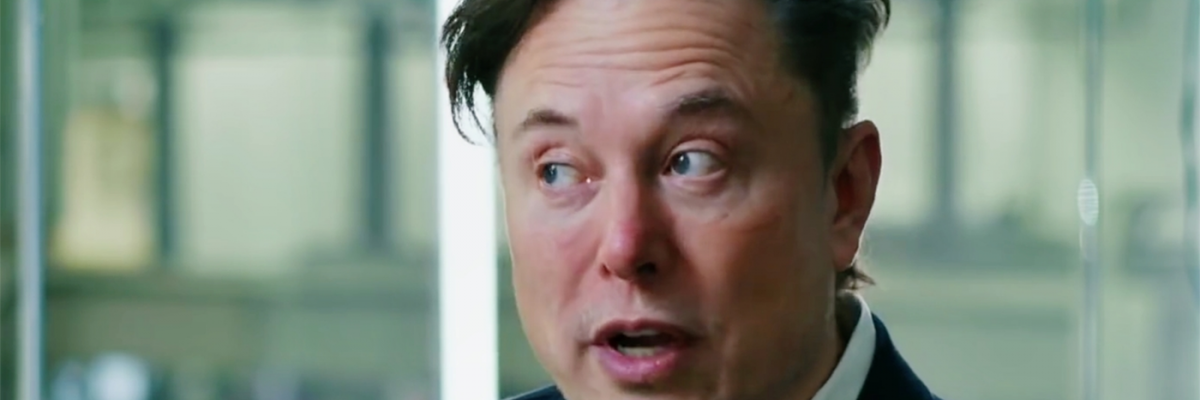cross-posted from: https://hexbear.net/post/3992477
Elon Musk, the owner of the app formerly known as Twitter, is calling on Wizards of the Coast and its parent company Hasbro to "burn in hell" for the publication of Making of Original Dungeons & Dragons. On November 21st, former gaming executive turned culture warrior Mark Hern posted several passages from Making of Original Dungeons & Dragons on Twitter, criticizing the book for providing context about some of the misogyny and cultural insensitivity found in early rulebooks. These passages were pulled from the foreword written by Jason Tondro, a senior designer for the D&D team who also worked extensively on the book. Hern stated that these passages, along with the release of the new 2024 Player's Handbook and Dungeon Master's Guide for D&D's "40th anniversary" (it is actually D&D's 50th anniversary) both "erased and slandered" Gary Gygax and other creators of Dungeons & Dragons.
In response, Musk wrote "Nobody, and I mean nobody, gets to trash E. Gary Gygax and the geniuses who created Dungeons & Dragons. What the [naughty word] is wrong with Hasbro and WoTC?? May they burn in hell." Musk had played Dungeons & Dragons at some point in his youth, but it's unclear when the last time he ever played the game.
Notably, Making of Original Dungeons & Dragons contains countless correspondences and letters written by both Gygax and Dave Arneson, including annotated copies of early D&D rulesets. Most early D&D rules supplements as well as early Dragon magazines are also found in the book. It seems odd to contain one of the most extensive compliations of Gygax's work an "erasure," but it's unclear whether Hern or Musk actually read the book given the incorrect information about the anniversary.
Additionally, Gygax and Arneson are both credited in the 2024 Player's Handbook and Dungeon Master's Guide. The exact credit reads: "Building on the original game created by Gary Gygax and Dave Arneson and then developed by many others over the past 50 years." Wizards of the Coast also regularly collaborates with Gygax's youngest son Luke and is a participant at Gary Con, a convention held in Gygax's honor. The opening paragraph of the 2024 Player's Handbook is written by Jeremy Crawford and specifically lauds both Gygax and Arneson for making Dungeons & Dragons and contains an anecdote about Crawford meeting Gygax.
Musk has increasingly leaned into culture war controversies in recent years, usually amplifying misinformation to suit his own political agenda.
Elon Musk hints at buying Hasbro for D&D after announcing AI game studio
A week later, on November 27, X user Ian Miles Cheong posted a screenshot showing Tondro’s response to Musk’s prior concerns.
When addressing Musk’s criticism of the book, Tondro explained that he and others agreed that backlash would come from “progressives and people from underrepresented groups who justly took offense at the language of OD&D.”
“How much is Hasbro?” Musk asked.
Although the X owner didn’t elaborate on a potential purchase, if Musk does end up acquiring Hasbro, he would also secure the rights to Transformers, Axis & Allies, Monopoly, Magic The Gathering, and even My Little Pony.
We’ll have to wait and see how this unfolds and if Musk is serious about potentially acquiring the entertainment juggernaut.


I tend to agree the weakest parts are the force & vehicular combat, but I gotta say I haven't had any real issues with the specialization trees. The fact that you can easily mix & match abilities between them prevents the feeling of being locked into a tree IMO.
Isn't this exactly how the force power rolls work? You can accept a failed force power roll if you choose not to use the dark side, but the option to use the points is almost always there which will lower your morality score. Plus, since light side & dark side have the same number of pips on the force die with DS pips spread over more faces, using DS points is almost always an "easier" way to accomplish your goal since the dice will come up DS more often. Eventually, you are able to use the DS points with no "detriment" but only after crossing a certain low morality threshold which has its own gameplay and narrative implications - the path does lead to easier power as one continues to use the dark side. Some powers & abilities are locked to dark side or generate negative morality points on their own, and those tend to be the absolute most powerful.
That being said, I've mostly run it for parties of scummy villains or rebel special agents - the force & morality systems don't tend to factor in much. Maybe it's just a difference in GM & player philosophy but I've never felt boxed in by the system mechanics and we've had tons of incredibly different characters at the table.
edit: as for the shipbuilding, I figure that stuff, the specific character of the vessels, probably shouldn't be the purview of strict game mechanics; I created ships that were part of the party "family" by working with my players, adding narrative details and quirks to the ships themselves. I've done this sort of thing across a number of systems (sailing ships in pathfinder, carriers in lancer etc.) and maybe aside from a suggestion from the rulebook I think this really depends on the creativity and fun generated between players & GM